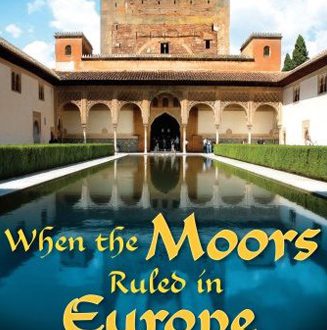 It’s May Day this Saturday. And while to most of us all it means is an extra day off work, to some it’s one of the year’s biggest dates. A menagerie of anarchists, anticapitalists and fairweather philosophers will descend on London intent on burning down burger bars and breaking the system. But among the madness and the rolling news stories, most of them won’t realise they’ve hijacked an ancient festival going back thousands of years – and they’ve all got it hopelessly wrong.
It’s May Day this Saturday. And while to most of us all it means is an extra day off work, to some it’s one of the year’s biggest dates. A menagerie of anarchists, anticapitalists and fairweather philosophers will descend on London intent on burning down burger bars and breaking the system. But among the madness and the rolling news stories, most of them won’t realise they’ve hijacked an ancient festival going back thousands of years – and they’ve all got it hopelessly wrong.
May Day today is the sibling of International Workers’ Day, an anti-establishment bash dating back to the Haymarket Massacre in Chicago in 1866, when police fired on workers demonstrating in support of the eight-hour day. But May Day itself goes all the way back way to pre-Roman Europe.
Beltane is the Celtic name for May, or the festival that was held at the beginning of May each year (and which is still held each year in Edinburgh). But while Celtic pin-ups like Boudicca were famed for their bloodlust, Beltane, like the solstices and equinoxes, was based on the shifting seasons, and marked the dawn of summer.
Sadly for us Brits that’s not always the case. But Beltane was one of the year’s most significant dates, when livestock were ushered out to graze on fresh green grass and mate. Likewise it was a time to celebrate human fertility, and marriage ceremonies would have been commonplace. Today Wiccans, Druids and pagans still honour Beltane by holding hand-tying services and burning ritual bonfires.
Romans were no strangers to festivals, and promptly hijacked Beltane as they swept through Europe. Flora (not the goddess of brightly-coloured butter but of flowers and vegetation) was worshipped as best the Romans could; drinking and dancing for no less than five days, between April 28 and May 3 (god knows what the hangover was like – the Egyptians had partying covered too, mind). Floralia joined Saturnalia (Christmas), Gamelion (Valentine’s Day – watch our romantic video here) in the pantheon of Roman royal knees-ups.
The Chrisitanisation of the Roman Empire in 313AD not only watered down pagan festivals but cleared the way for a new May Day, this time when Emperor Constantine’s 80-year-old mum Helena claimed she’d discovered the Holy Cross in Jerusalem in 326. Thus began the Feast of the Cross, or Roodmas in Old English, celebrated on May 3; later on September 14 to glorify Byzantine Emperor Heraclius’ retrieval of the cross from Persian invaders in 628.
Nonetheless May Day has always been a peaceful affair, a day on which to pay tribute to the seasons and pastoral traditions. I guess you could argue that this weekend’s May Day events are a paean to the bucolic past. But it does seem that smashing seven shades out of a Starbucks isn’t the best way to celebrate fertility…





